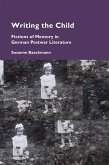Forced to flee Germany, the eminent drama critic, poet and fiercely vocal anti-Nazi journalist, Alfred Kerr, settled in London in 1935 and became deeply attached to the calm and decency he found in the «island people».
With much dry wit and some perplexity, his journal, translated here from German for the first time, savours the quirks and foibles of the enigmatic nation, wondering whether it will emerge at long last as the saviour of civilisation.
His humorous and perceptive observations span society - from aristocrats, politicians and literary figures like G. B. Shaw and H. G. Wells to the characters in pubs and courtrooms.
Enriched by his expertise in German classical culture, the journal traces the agony of an emigré following Britain's prolonged attempts to appease the «brown war-menace», shrewdly interwoven with attempts to understand the British, «a mystery, even to themselves».
This is the longest ever thank-you letter from a migrant to Great Britain.
With much dry wit and some perplexity, his journal, translated here from German for the first time, savours the quirks and foibles of the enigmatic nation, wondering whether it will emerge at long last as the saviour of civilisation.
His humorous and perceptive observations span society - from aristocrats, politicians and literary figures like G. B. Shaw and H. G. Wells to the characters in pubs and courtrooms.
Enriched by his expertise in German classical culture, the journal traces the agony of an emigré following Britain's prolonged attempts to appease the «brown war-menace», shrewdly interwoven with attempts to understand the British, «a mystery, even to themselves».
This is the longest ever thank-you letter from a migrant to Great Britain.








